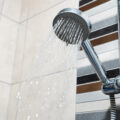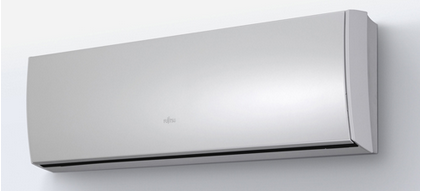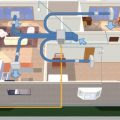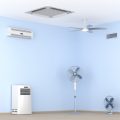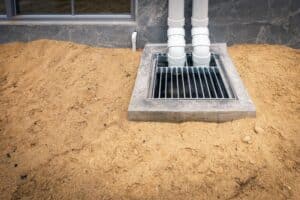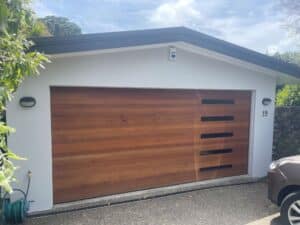How do you make sure you purchase the right heat pump for your home?
How do you balance heating and running costs? Lets find out!
North Shore electricians Jenco Electrical suggest three key questions to determining the right heat pump for your home. They also include a handy guide to understanding some of the terms used.
What do all the terms mean?
Heat Pumps – A heat pump is a device that moves heat from one place to another. Heat pumps are used to transfer heat from the ground, air, or water to heat a home or office. The most common type of heat pump is an air-source heat pump, which transfers heat between your home and the outdoors.
Heat pumps work by moving heat from a cooler space to a warmer space. In the winter, heat pumps move heat from the cool air outside to the warm air inside your home. In the summer, heat pumps move heat from the warm air inside your home to the cool air outside.
Heat pumps are very efficient and can save you money on your energy bills. They are also environmentally friendly because they do not use fossil fuels.
In New Zealand we refer to them as heat pumps for domestic purposes, and call them air conditioners for commercial installations. In Australia they use the terms air conditioning, aircon, split systems, and reverse cycle air conditioners.
Heating Output – how much heat will be generated. Measure in Kilowatt (kW), it is important to make sure that the kW matches the size of the room. As a point of reference, the 3.2 kW heat pumps in the chart below are among the smaller you can purchase, and will likely heat a small room. Other compact models will go up to around 10kW.
Cooling Output – how much cool air will be generated. It is usually different to heating output and so you need to choose a heat pump that meets both your heating and cooling requirements, or prioritize whichever is your greatest need.
Energy Rating (Cooling) – in New Zealand this is shown using a star system, as seen below. the more stars, the more energy efficient, with 6 stars being the best rating.
High Wall – Heat pumps can be installed near the ceiling on an internal wall. McClelland Refrigeration suggest that High wall heat pumps have dominated in recent decades as they can be cheaper to purchase, easy to install and do not clutter your floor space.
Floor Console – Floor mounted consoles are used in homes that cannot work with a high wall, such as homes with tall windows. Floor console heat pumps can be more expensive than high wall heat pumps, but they offer an excellent alternative to a high wall unit, when wall space is limited or undesirable. As they are mounted low on the wall they are very good at dispersing the heat they generate through the room at a level you will feel.
Putting it into practice
To illustrate these terms, the following chart compares the energy rating of three heat pumps. You can see from the chart below that:
- The Hitachi heat pump has the best energy rating of the three, with 5.5 stars.
- The higher energy rating means lower operating costs at $112 vs $119 for the Fujitsu.
- The Hitachi and Mitsubishi provide more cooling than the Fujitsu.

GenLess tool for comparing heat pump energy ratings
Jenco suggest a three step method for selecting your heat pump.
Tip #1: Decide which rooms need heating
This is perhaps the easiest question to answer. Heating an entire home requires a larger solution than heating the office.
If you already have a log burner but want to heat the end bedrooms, then you may only need a couple of individual units.
Clearly, the larger the area you wish to heat, the greater the cost of the system you need to install. However, you may save a lot of money over the long term by using a heat pump compared to other heating solutions.
Tip #2: Choose the right type of heat pump
This relates to the previous tip. The area you want to heat will go some way to determining which solution you need.
If you only want to heat your living area, then you may find that a high-wall or floor console heat pump will do the job. If you also want to heat one or two bedrooms, you may add a smaller unit to each bedroom.
But if you want to heat your entire home, ducted in-ceiling aircon may be more effective. It’s the same technology but on a larger scale.
Ducted Heat Pumps
The benefit of ducted aircon is that the main units are hidden in the ceiling, so you don’t need to install multiple units on your wall. Easier, tidier, and looks much nicer.
However, it is important to note that this will heat every room to the same temperature. If you want more each room to be individually climate controlled, multiple small units will do that for you.
Multi-Zone Heat Pumps
A multi-zone heat pump allows you to heat or cool up to six indoor spaces with a single outdoor unit. You can control the temperature for each individual area, which could be an improvement on a ducted solution.
Tip #3: Choose the right sized heat pump
Gen Less recommend that when choosing a new heat pump, it’s very important to select the right sized unit for the room or house.
We aren’t talking about the physical measurements of the unit, but how much heating or cooling it can produce (kW).
Sounds simple right? Measure the room and choose the relevant heat pump. Sorry… its not that easy.
- Room size is a very important factor, as the larger a room is, the larger the heat pump needed. Bear in mind that room size takes into account ceiling height too.
- It is also important to consider how well insulated the room or house is. A poorly insulated house will lose heat quickly and require more heating from the heat pump. Good insulation requires less.
- Where do you live? It is highly likely that Wanaka will need more heating than Whangarei.
- As mentioned above, are you buying the unit primarily for heating or cooling… or both?
- Is the room facing north or south? How does that effect the temperatures you are dealing with?
- How big are the windows? Are they single, double or triple glazed?
- You could even factor in the building materials of the home, to se if there is any heat likely to be stored in concrete or bricks
From the above you can see that it is important to understand that every home is different. What works for your friend in Dunedin might not be the best choice for a heat pump in Tauranga.
Will one suit you?
Consumer NZ suggest that before you begin choosing a size, style or model of heat pump, you need to consider their pros, cons and cost-effectiveness.
Pros
Warm, dry and comfortable
Heat pumps can provide a level of all-round comfort not easily obtained by plug-in electric heaters. They can quickly bring a room up to temperature and then maintain it.
Lower heating costs
If you install a heat pump and keep your home about as warm as you do now, you could save a considerable amount in heating costs. But some of our members with heat pumps tell us they use their units to keep their homes warmer than before, so their heating bills haven’t dropped by much.
No gas charge
If you install a gas heater, you’ll have to pay a gas connection charge (often around $40 per month) all year round, for a heating appliance you use for less than a whole year.
Cooling
A reverse-cycle heat pump is the only type of home heating system that can both heat and cool a room.
Dehumidifying
Do heat pumps dehumidify?
- Yes … in cooling mode, the cooled air can’t hold as much water so the water condenses out of the air inside the heat pump and is drained away.
- Yes … in dehumidifying (“dry”) mode, the heat pump alternates between cooling and heating modes to keep the room at an approximately constant temperature. Water is extracted during the cooling part of this cycle.
- No … in heating mode, the heat pump doesn’t remove water from the air. However, because warm air can hold more water than cool air, the “relative humidity” decreases as the heat pump raises the air temperature. So the warmer air feels drier.
Air filtering
Many modern heat pumps incorporate a washable filter unit that removes dust and particles from the air. This could be an important feature for people with asthma and allergies. The filters need regular cleaning to keep the unit working at maximum efficiency. Some have a deodorising function as well.
House value
A heat pump installation may also add to your home’s resale value.
Cons
Noise
Whirring fans can be very annoying. Fans run in both the interior and exterior units all the time they are switched on. The fan in the inside unit of a heat pump should produce little more than a low hum in low-speed mode, but the compressor plus fan of the outside unit can be quite noisy.
Not so good in low temperatures
Extracting heat from outdoor air gets more difficult as the temperature drops. Sometimes, especially on frosty nights, exterior heat pump units freeze up and have to stop working for several minutes while they defrost.
Draughts
Circulating air can cause draughts – which means you need to think about where to place the unit. You don’t want one on the wall just above your favourite armchair.
Shop Around
Finally, make sure you shop around as in every season you will find heat pump specials that make your purchase easier on your wallet.
I hope thats helpful

